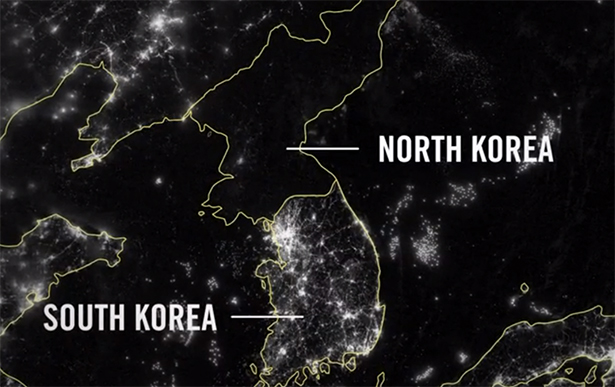Retaliation? North Korea’s Internet Connection Goes Down Hard
If you mess with the bull, you’ll get the horns. Sony became the victim of a massive cyberattack that took place in late November. But not only was Sony a victim, but numerous Sony employees were caught up in the mess when sensitive personal information like social security numbers were leaked onto the internet.
After the hack came threats against Sony employees and their families, followed by terrorist threats against movie theaters that dared to show the film, “The Interview,” which resulted in major cinema chains withdrawing their support for the film. Without backing from big names like Regal Entertainment and Cinemark, Sony announced that it would not release the movie.

"Hey guys, can someone reboot the router?"
In the wake of the Sony announcement, the FBI and even the White House have weighed in. The FBI condemned the hack, stating, “Such acts of intimidation fall outside the bounds of acceptable state behavior.”
“They would be mindful of the fact that we need a proportional response, and also mindful of the fact that sophisticated actors, when they carry out actions like this, are oftentimes — not always, but often — seeking to provoke a response from the United States of America,” added White House press secretary Josh Earnest. “They may believe that a response from us in one fashion or another would be advantageous to them. So we want to be mindful of that.”
Well, it looks like North Korea is now on the receiving end of the “proportional response.” North Korea has been sent back into the tech “dark ages” thanks to a widespread Internet outage. North Korea has four main pipes — all routing through China — which connects the country to the Internet. All four of them have begun experiencing “intermittent” issues yesterday, and completely went offline this afternoon.
The outage is unprecedented according to Dyn Research. “I haven’t seen such a steady beat of routing instability and outages in KP before,” explained Doug Madory, Dyn Research’s director of Internet analysis. “Usually there are isolated blips, not continuous connectivity problems. I wouldn’t be surprised if they are absorbing some sort of attack presently.”

All of this uproar over a movie starring two people who would more likely be caught "rolling a few" than picking a fight.
The U.S. isn’t officially commenting on its possible part in such actions against the North Korean government, although a few cryptic messages have been delivered to news agencies. Bernadette Meehan, the spokesperson for the White House National Security Council was asked about the outage, but threw the question back, stating, "If in fact North Korea’s Internet has gone down, we’d refer you to that government for comment."
Guess we shouldn’t bother trying to reach them via email.
State Department spokeswoman Marie Harf was a little more forthcoming, but still denied the United States’ direct involvement in a plot to take out North Korea’s Internet. "We aren't going to discuss, you know, publicly operational details about the possible response options or comment on those kind of reports in anyway except to say that as we implement our responses, some will be seen, some may not be seen.”
Whoever is behind this recent attack, North Korea can’t possibly be too happy about the result. But then again, if you decide to pick on someone, it's usually best to pick on someone your own size.

